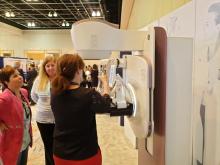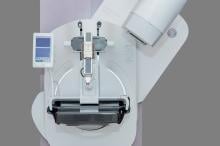Konica Minolta Healthcare Americas Inc. announced that its Dynamic Digital Radiography (DDR) technology, introduced at the 2018 Radiological Society of North America (RSNA) annual meeting, has received 510(k) clearance from the U.S. Food and Drug Administration (FDA). The company says DDR represents the next evolution in X-ray imaging with the ability to capture movement in a single exam and is a fundamental change in the way clinicians can utilize radiography.
© Copyright Wainscot Media. All Rights Reserved.
Subscribe Now




